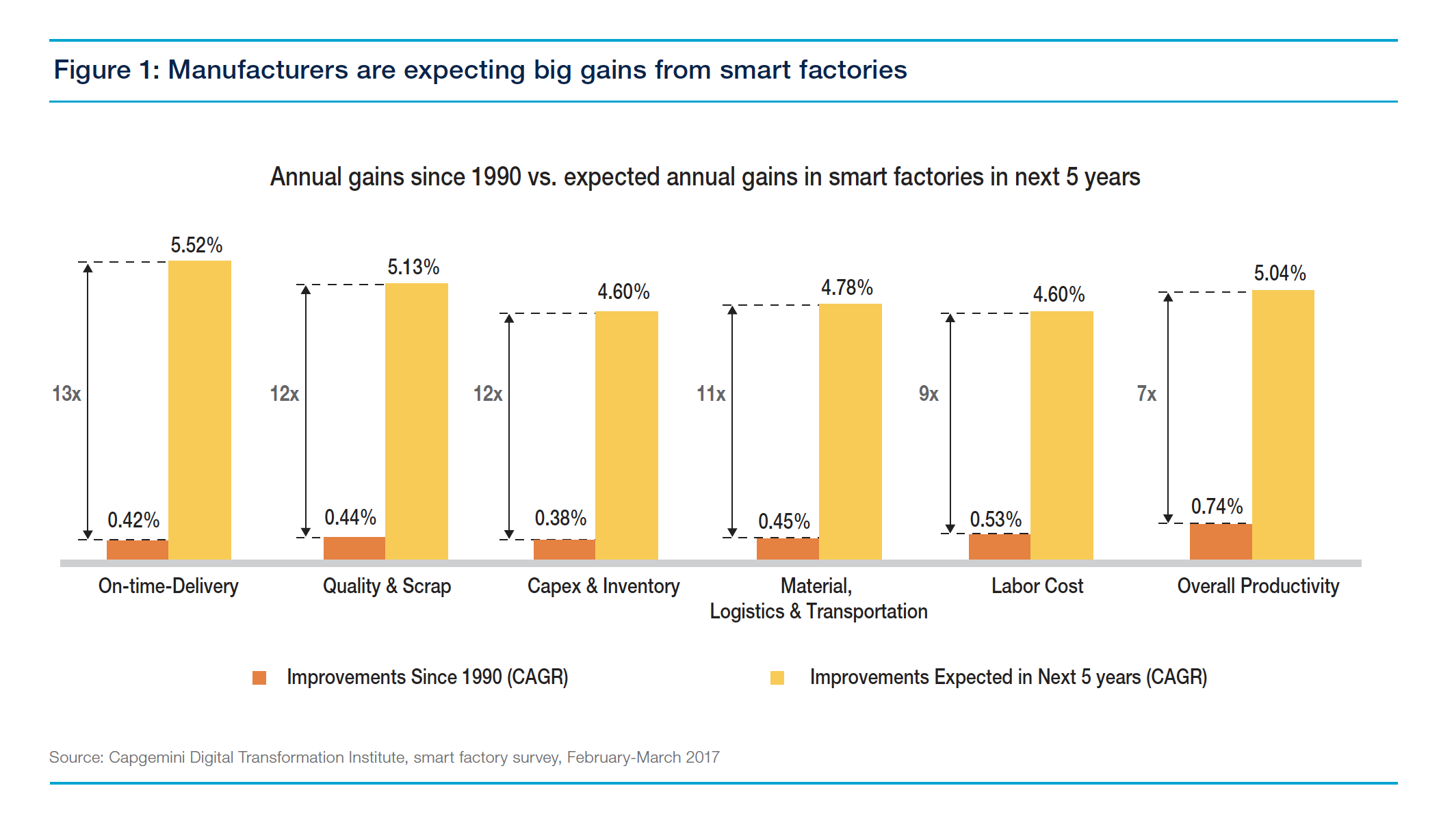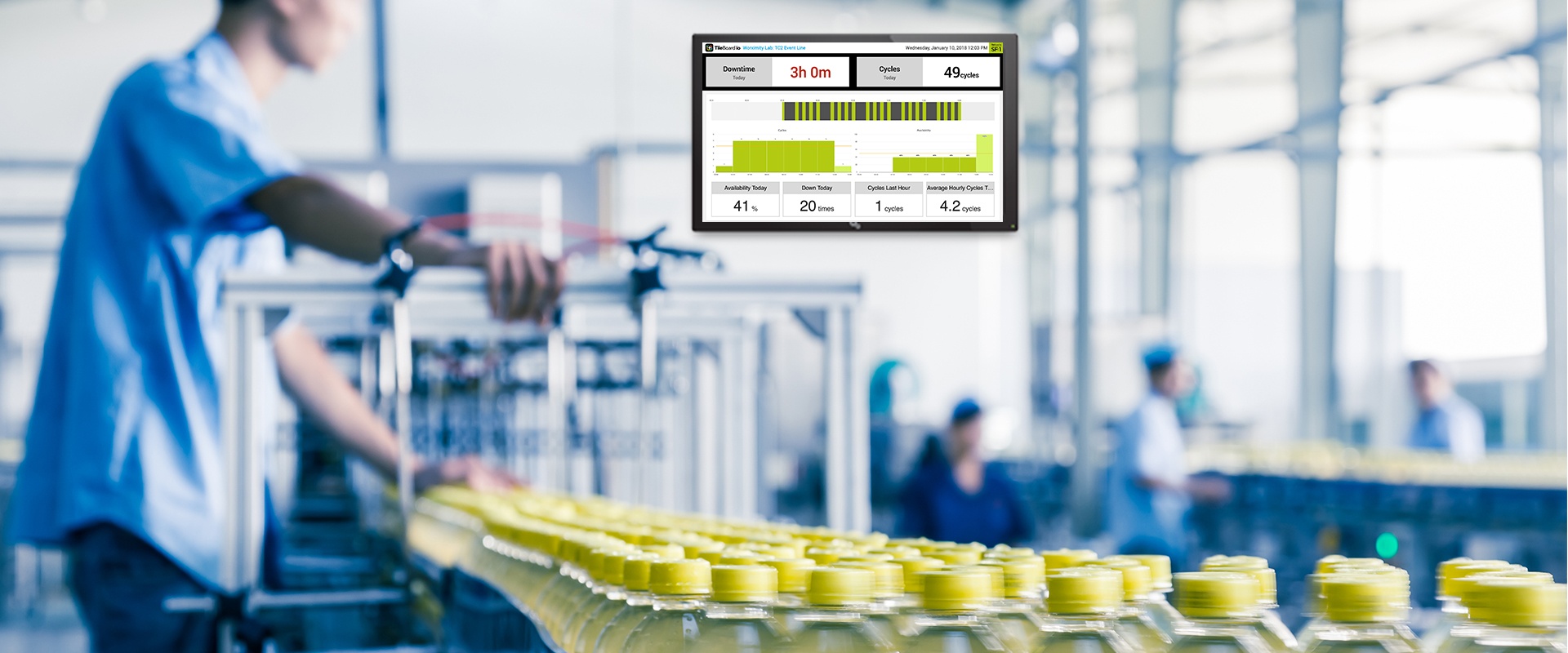Manual processes held us back from being as efficient as we can be, so we evolved. The same is true in factories today.
Legacy processes hold manufacturers back. Automation is the path forward, and it’s not enough to use just some automation on the factory floor. If you don’t have a digital factory, your operation is bound to miss one or more various micro-stops that hinder productivity and result in unplanned downtime.
There are many digital factory software solutions to consider, but not all are created equal. It’s important to keep certain aspects in mind when you are evaluating process manufacturing software.
3 Elements to Consider When Evaluating Process Manufacturing Software
1. Automatic, Real-Time Data Collection
Factories today need information now. The best manufacturing software provides access to real-time data analytics throughout the manufacturing process, positioning you to optimize processes as well as boost productivity and efficiency. With new insights, your operations can improve quality, reduce bottlenecks, pivot to meet changing needs, and more.
In contrast, not embracing the digital factory in process manufacturing is likely to leave you behind and make you less competitive. According to Deloitte, U.S. manufacturers will triple their labor productivity rate through 2030 because of Smart Factory initiatives. Embracing digital factory technology will help keep you competitive, and the right factory software solution will help you to gain an edge.
2. Wi-Fi to Connect All Equipment
Wireless connections streamline activities and communication between devices. Cloud-based software connects users and machines, facilitating seamless interaction. You can bring disparate data silos together instantly. Additionally, wireless sensors can be installed on equipment to communicate to smart software, which can analyze data and provide real-time operating metrics.
3. Smart Factory Analytics
Does a process manufacturing software candidate provide a real-time dashboard and analytics reporting? If not, keep looking. These elements highlight specific issues as they happen, so you can develop plans of action for particular areas of improvement based on data.
For example, a real-time dashboard gives you insights into crucial factory floor information:
- Identify micro-stops.
Factory downtime happens for many reasons, and Smart Factory analytics dashboards show these micro-stops, ranging from equipment breakdowns to gaps in preventive maintenance programs.
- Improve throughput.
How Smart Factory Analytics Help with OEE
Measuring overall equipment effectiveness (OEE) will give you a benchmark to assess performance and work toward continuous improvement. OEE measures manufacturing effectiveness, productivity, and efficiency. This metric helps identify operational issues, shows the amount of truly productive manufacturing time, and standardizes progress tracking. Smart Factory analytics will give you a clearer picture of your actual OEE performance.
What does OEE measure?
OEE answers three questions:
- How often is the machine available?
- How fast does the machine run when active?
- How many acceptable parts did the machine produce?
It is determined by multiplying the answers to those questions:
OEE = Availability x Efficiency x Quality
The measure reveals whether a piece of equipment is effective and if it can meet customer demand, all while pointing out six productivity losses related to availability, performance, and quality.
Try this OEE calculator to get started collecting the data you need.
End-to-End Process Manufacturing Software Suite
Data collection, connectivity, and analytics capabilities are essential to any process manufacturing software solution aimed toward maximizing productivity. Worximity’s software solutions put actionable information in your hands so you can make immediate, continuous improvements, meeting core KPIs along the way. Contact us to learn more.
Data Collection
+ Real-Time Dashboard
+ Analytics Reporting
= Continuous Improvement
















